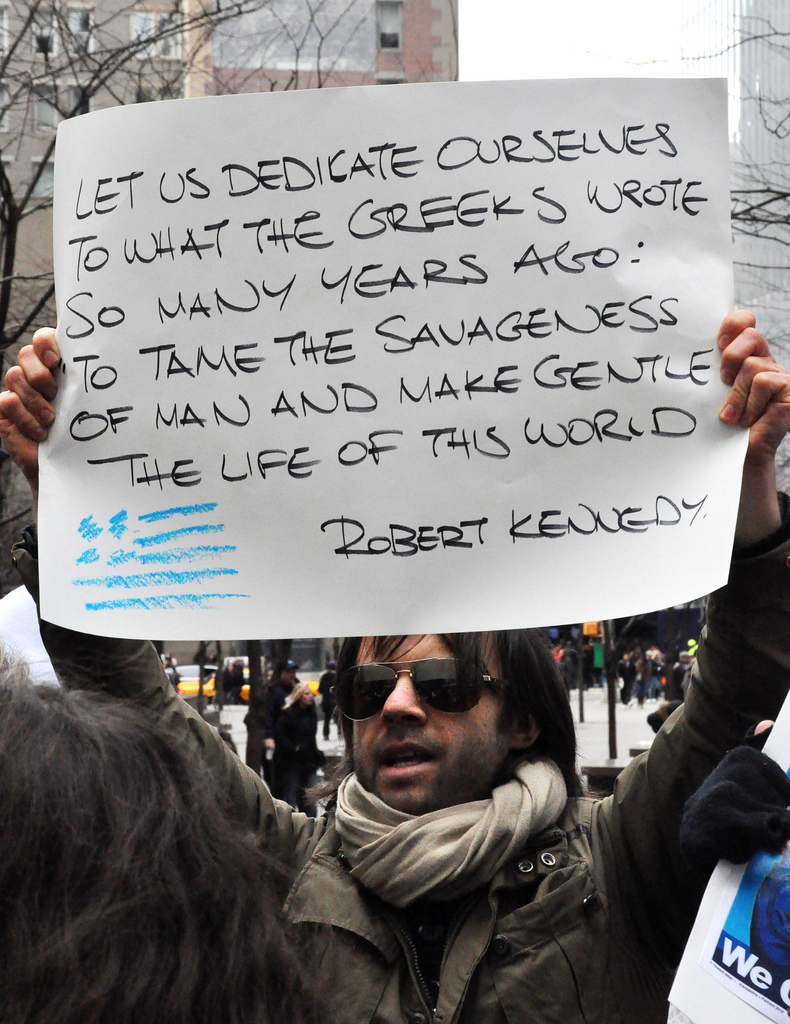
Die Bärliner blog launches today a series where Bard College Berlin faculty offer their perspective on much-debated contemporary issues or current hot topics. If you’d like to ask one of our faculty member a question in this category, please send it to [email protected].
The Iliad is a tragedy. Since tragedies show that terrible suffering is inevitable, perhaps the Iliad is not the place to look for practical solutions to problems. What tragedy teaches—is to pray that you’re not a character in a tragedy!
But let me try to adopt a more sporting attitude towards the question . . .
You could say that the Iliad begins with a financial crisis. Apollo’s priest, Chryses, comes into the Greek camp in order to exchange “limitless ransom” for his captive daughter. Not only is the priest’s money refused, he’s gratuitously insulted as well. He’s told that he’ll never get his daughter back, and that he should get the hell out of the Greek camp while he still can. This event starts a chain-reaction in which one failed attempt to make up for a loss of value leads to another and another and another. That’s a spiraling financial crisis, of a kind. The most famous of these failed attempts is Achilles’ refusal of Agamemnon’s long list of gifts in Book 9. The most heartrending is the failure of the death and mutilation of Hector to adequately compensate Achilles for the loss of Patroklus.
What is the relevance of this ancient story to our modern, ongoing financial crisis? I would say that the Iliad is a poem about a permanent human confusion as to what has a price and what doesn’t. In a really serious financial crisis, things that seem to be incommensurate with cash-value, such as one’s own dignity, become part of the crisis. If the current crisis is also one of dignity as well as money—and the accusations and counter-accusations of greed, laziness, and shamelessness indicate that it might be (you can also find these accusations in Book 1 of the Iliad)—then the resolution to this crisis, like the resolution to the Iliad, will have to involve spiritual greatness and generosity. There’s a lesson for you!
